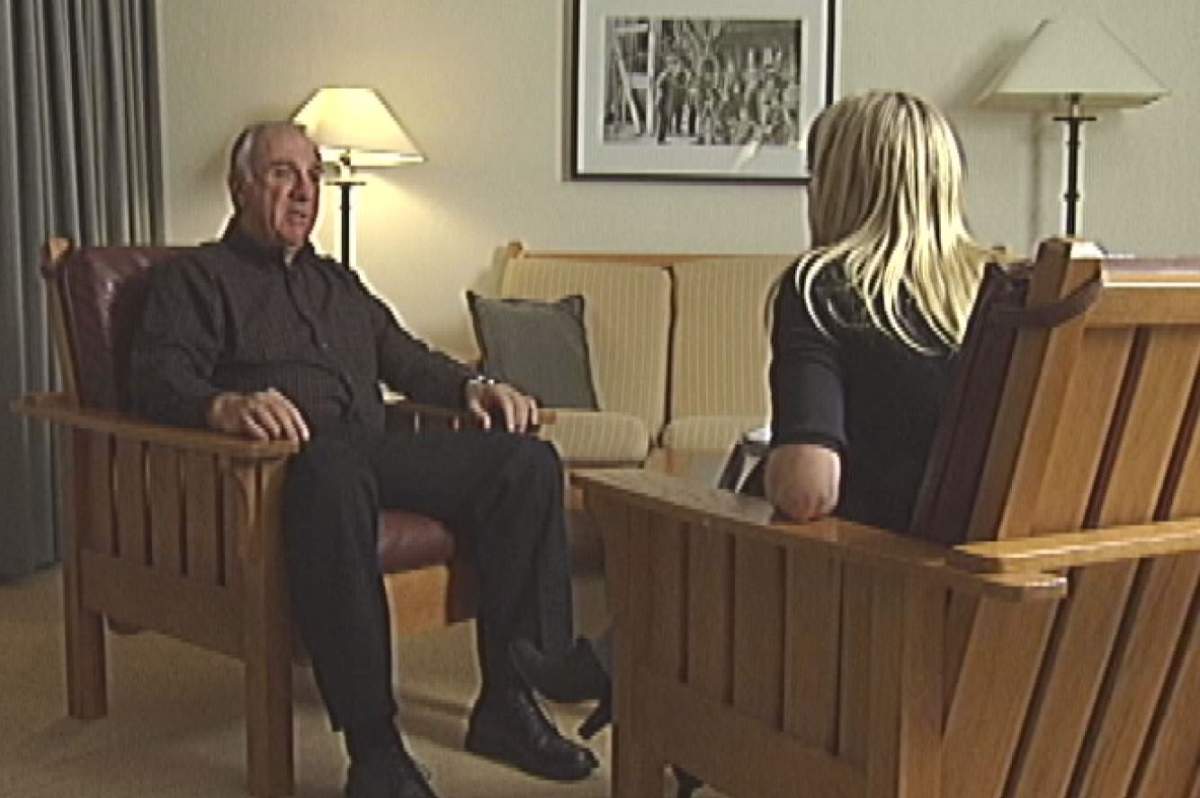
By
Nancy Hixt
Global News
Published May 18, 2021
4 min read

In the summer of 1999, the RCMP in central Alberta investigated a horrific case involving two children.
A father murdered his little girl and tried to kill his son.
The case haunted investigators for decades.
But it was particularly traumatic for one officer because it launched a completely unrelated series of events that ultimately led to him being wrongfully accused of sexual assault.
It would leave his life torn in pieces.
Const. John Hudak said he was confident he would be exonerated.
DNA evidence cleared him.
Yet the prosecution continued.
Hudak hired a private investigator who learned the complainant in the case, Mildred Johnson, had a criminal record in Texas.
Her sister told police she had a habit of lying.
Johnson told police she had her couch, where she claimed the alleged assault happened, professionally cleaned.
At first, she said she couldn’t find the receipt.
Court documents show, months later in November 2000 she provided a receipt to RCMP investigators.
Hudak said there was something about the receipt that looked suspicious.
Was it possible that the police accepted a fraudulent receipt from Mildred Johnson?
According to documents disclosed to Hudak’s defence, the cleaning company told police it felt the receipt was a fake.
The logo on the receipt matched the logo on the promotional magnets that cleaners left on customers’ furnaces when they finished a job.
The business said that while it did furnace work at Johnson’s home in October 2000 — eight months after the alleged assault — it had not sent anyone from the company to her home before that.
The company also stated that on Feb. 21, 2000, — the date on the receipt — the business wasn’t even open as it was a statutory holiday.
Still, the matter proceeded to trial.
On Feb. 13, 2002, Justice Jack Holmes handed down his decision.
He said, in his “respectful opinion, the manufacturing by Mrs. Johnson of the fake receipt for the purpose of submitting it as evidence against Constable Hudak has the serious effect of tainting her other testimony.”
Justice Holmes noted police couldn’t find any incriminating DNA evidence and added “the court had little reason to doubt the evidence of Constable Hudak.”
“I wonder if this matter would have ever gone to trial if Constable Hudak had not been a policeman,” Holmes said. “It seems to me that the Crown has extended itself in this case to try to give the public the perception that policemen receive no special treatment if they are charged with criminal complaints.”
“Unfortunately, a dedicated and respected policeman has been seriously maligned,” he added.
There was applause in the courtroom as the judge spoke his final words.
Cons. Hudak was found not guilty and acquitted of all charges.
Mildred Johnson was later charged and in December 2003, she pleaded guilty to two counts of perjury, uttering a forged document and forgery.
In part two of this special Crime Beat series, Global News crime reporter Nancy Hixt explains the mind-blowing twists and turns of this case.
Learn what it’s been like for this veteran officer to live with the stigma of being wrongfully accused of a serious criminal offence in the conclusion of ‘Scarred but not broken.’
—
If you enjoy Crime Beat, please take a minute to rate it on Apple Podcasts or Google Podcasts, tell us what you think and share the show with your friends.
Contact:
Twitter: @nancyhixt
Facebook: https://www.facebook.com/NancyHixtCrimeBeat/
Email: nancy.hixt@globalnews.ca
If you enjoy Crime Beat, please take a minute to rate it on Apple Podcasts or Google Podcasts, tell us what you think and share the show with your friends.
Contact:
Twitter: @nancyhixt
Facebook: https://www.facebook.com/NancyHixtCrimeBeat/
Email: nancy.hixt@globalnews.ca
We LOVE that you are loving the Crime Beat podcast! If you haven’t subscribed yet — what are you waiting for?



Comments
Comments closed.
Due to the sensitive and/or legal subject matter of some of the content on globalnews.ca, we reserve the ability to disable comments from time to time.
Please see our Commenting Policy for more.